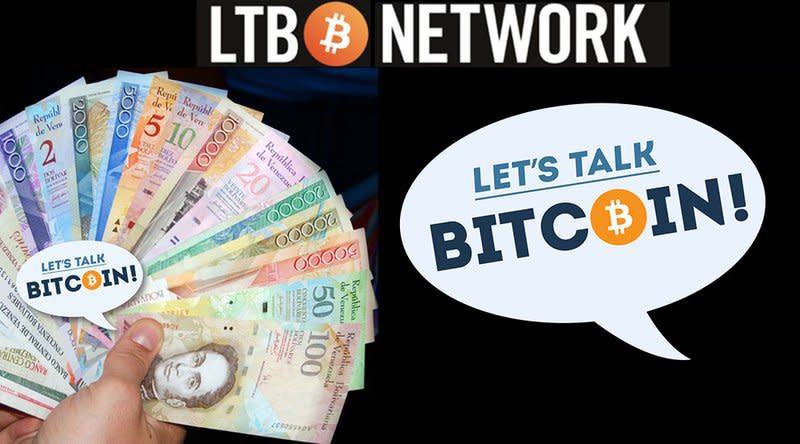Insight From a Place of Crisis: Bitcoin as an Agent of Change

Delving into bitcoin can take guts — and not just the type of bravado needed to embrace crypto speculation. Sometimes standing up for bitcoin also means standing up for your homeland and fellow citizens, in search of a better way.
The latter display of bravery is embedded in the recently launched Let’s Talk Bitcoin! podcast #370 hosted by Adam B. Levine, Stephanie Murphy and Jonathan Mohan. That’s where LTB correspondent Christian Garcia steps up with a report from a country in crisis, reminding listeners about the world-altering dimensions of bitcoin that are separate from investing.
Panic in Venezuela
Garcia’s story is rooted in his home country of Venezuela, which has been getting plenty of bad PR over the last several years. This nation on South America’s northern coast has become synonymous with the phrase economic crisis, battering the vast majority of its 31,000,000+ citizens with hyperinflation, economic depression, shortages of all kinds, unemployment, poverty, disease, child mortality, malnutrition and crime.
Note the “vast majority” qualifier above, placed there because rampant corruption is helping to fuel all these horrors. For those lucky enough to still be in the middle class or higher, and/or on the take with the oppressive government of President Nicolás Maduro, life can be just fine.
Creative ways of moving illicit money has become a hallmark of Venezuelan rule, a practice whose origins long predate Maduro’s administration, fueled in recent history by the 20th century discovery of oil there. A nauseating cycle of boom-and-bust followed for the Venezuelan people, who were sometimes helped but mostly hurt by the government’s attempts to stabilize the economy.
In the LTB podcast, Garcia provides a riveting, first-hand perspective on the destructive consequences of these policies. Here, he describes a tantalizing opportunity offered to him in 2012 when he was a second-year student in college: a chance to study in Dublin for free. “The plane ticket, the English course, the stay: all of that would have been paid for. We’d even be getting a small allowance to pay for part of the living expenses … The more we talked about it, the more I was convinced it was a great idea.”
Garcia began to dream of Dublin, even as he kept his eyes peeled for the catch. And, of course, there was one, albeit well-concealed from the naked eye: The student trips were actually just one more way for schemers to get their hands on the black market dollars that sprang from travel subsidies offered to Venezuelans by the National Center for Foreign Commerce, or CADIVI (now known as CENCOEX), the governmental body which oversees legal currency exchange there.
The scam’s machinations are laid out in Garcia’s report, culminating in both good news and bad news. While Garcia himself avoided the trap by ultimately deciding not to go to Dublin, many of his compatriots were not so lucky.
“This kind of policymaking is not sustainable,” he explains. “In 2014, the government’s cash cow was finally running dry, and they decided to pull the plug on many subsidies from CAVIDI … The Piñata times were finally over. The credit cards of Venezuelan students all over the world suddenly stopped working.” Students in Dublin were literally rendered homeless and stranded, unable to afford their housing, courses or food, while their families lacked funds to buy them a plane ticket out of Ireland.
Crypto’s Positive Impact
Hearing a story of injustice like this, it’s reasonable to want to reach out to Venezuelans by sending money to friends and family in need or donating to a local outpost of a trusted charity there, like Amnesty International or the Red Cross. But as much as Garcia sees the need for financial aid, it’s actually not an action he’d encourage right now.
The reason? Venezuela’s crooked government still has easy access to the foreign currency that comes in via the official exchange system, exchanging dollars at a bad rate for domestic Bolívars. “You might as well light your money on fire,” he says. Hundreds of billions of dollars may have gone missing as a result.
It’s depressing, but there’s an emerging bright side to these oil-soaked economics: Venezuelans can get around the official exchange system with cryptocurrency. The bitcoin tips that Garcia receives for his correspondence is just one example.
“Every time you send crypto to someone in Venezuela, you are bypassing a system that’s designed to steal from us,” says Garcia. “Cryptocurrencies aren’t as widespread in Venezuela as I’d like, not yet, but imagine if you could finance an NGO in Venezuela directly. That, for me, is the single best feature of cryptocurrencies.”
Fortunes large and small have been made — and lost — with cryptocurrency so far. In the race to reach dizzying heights, Garcia’s report is a welcome reminder of bitcoin’s power to level the financial playing field. It’s what makes cryptocurrency a true currency of change.
This article originally appeared on Bitcoin Magazine.

 Yahoo Finance
Yahoo Finance 
